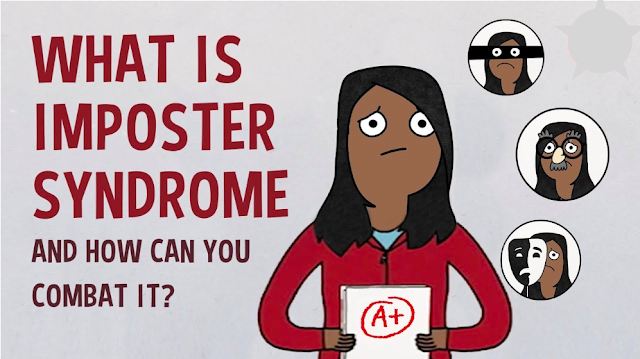Imposter Syndrome:
Even after penning eleven books and receiving numerous important honours, Maya Angelou struggled to shake the feeling that her successes weren’t truly deserving. Similar experiences were encountered by Albert Einstein, who characterised himself as a “involuntary swindler” whose contributions did not merit the praise they had earned. It’s uncommon to achieve things on the level of Angelou or Einstein, but it’s very typical to feel like a fraud.
Why is it that so many of us struggle to overcome sentiments that we haven’t earned our successes or that others shouldn’t care about our ideas and abilities?
The first person to investigate this unwarranted sense of insecurity was psychologist Pauline Rose Clance. In her job as a therapist, she observed that many of her undergraduate patients had the same issue: despite having strong grades, they didn’t feel deserving of their admission to the university. Some even thought their acceptance had been a mistaken admittance. Although Clance was aware that these worries were baseless, she could recall having a similar reaction when in graduate school. The imposter phenomenon, imposter experience, and imposter syndrome were all things she and her patients went through.
Clance first investigated imposterism in female professors and students in higher education with her colleague Suzanne Imes. In this group, their work created pervasive sentiments of deceit. Since that initial study, it has been demonstrated that the same phenomenon occurs across gender, ethnicity, age, and a wide range of occupations, however it may be more pervasive and disproportionately impact the lives of underrepresented or disadvantaged groups. The term “syndrome” minimises how widespread it is. It’s not an illness or an aberration, and it’s not always related to self-esteem issues like despair or anxiety.
Where do these thoughts of fraud originate?
People who are competent or highly skilled frequently believe that others are equally talented. This might lead to sentiments of not deserving recognition and chances more than others. There is frequently no level of achievement that sets these feelings to rest, as Angelou and Einstein discovered.
Experience:
Even highly skilled people can experience feelings of imposter syndrome. Everybody is prone to a phenomena called pluralistic ignorance, when we all secretly doubt ourselves but assume we’re the only ones because no one else expresses their doubts. There is no simple method to get rid of feelings that we are less capable than the others around us because it is difficult to truly know how hard our peers work, how challenging they find specific activities, or how much they doubt themselves. People may be reluctant to share their brilliant ideas or apply for positions and programmes where they might succeed due to intense emotions of imposter syndrome.
Conclusion:
Talking about impostor syndrome has proven to be the most effective treatment, at least so far. Many imposter syndrome sufferers worry that if they inquire about their performance, their worries would be validated. And even when they get encouraging feedback, it frequently does not help them feel less like a phoney. On the other side, learning that a mentor or advisor has felt like an impostor has helped to alleviate those thoughts. Peers are similarly affected. Even just knowing that there is a name for these emotions may be so relieving. By gathering and reviewing good comments, you can fight your own impostor syndrome once you’re aware of the condition. One researcher who kept placing the blame for issues in her lab on herself began to record the causes each time something went wrong. She eventually understood that equipment failure was the primary cause of most issues and began to believe in her own abilities.
We may never be able to completely eradicate these emotions, but we can talk openly about difficulties in school or at work. Perhaps as we become more conscious of how frequent these experiences are, we will be more able to express our emotions honestly and gain trust in certain fundamental facts, such as “you have skill, you are capable, and you belong.”
Related Searches:
how to help someone with imposter syndrome, overcoming imposter syndrome pdf, how to overcome imposter syndrome in relationships, what kinds of words or actions would be helpful to a friend who is dealing with impostor syndrome?, how to overcome imposter syndrome at work, imposter syndrome test, how to deal with imposter syndrome in academia.
List of Tags:
imposter syndrome, psychology, accomplishments, doubt, confidence, combat, help, imposter syndrome, imposter syndrome book, imposter syndrome meaning, imposter syndrome symptoms, imposter syndrome test.



